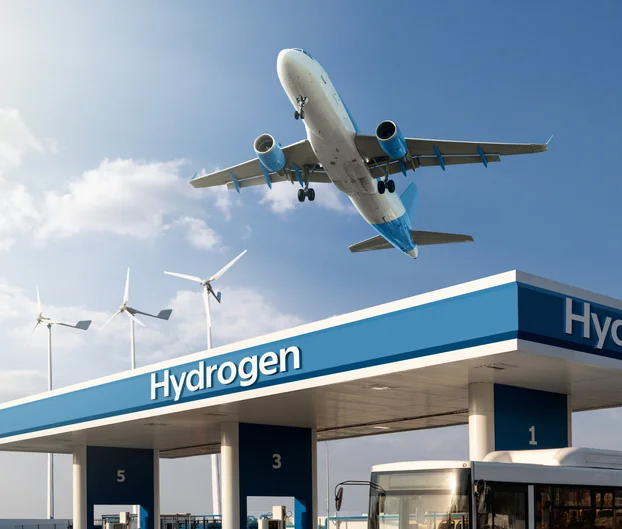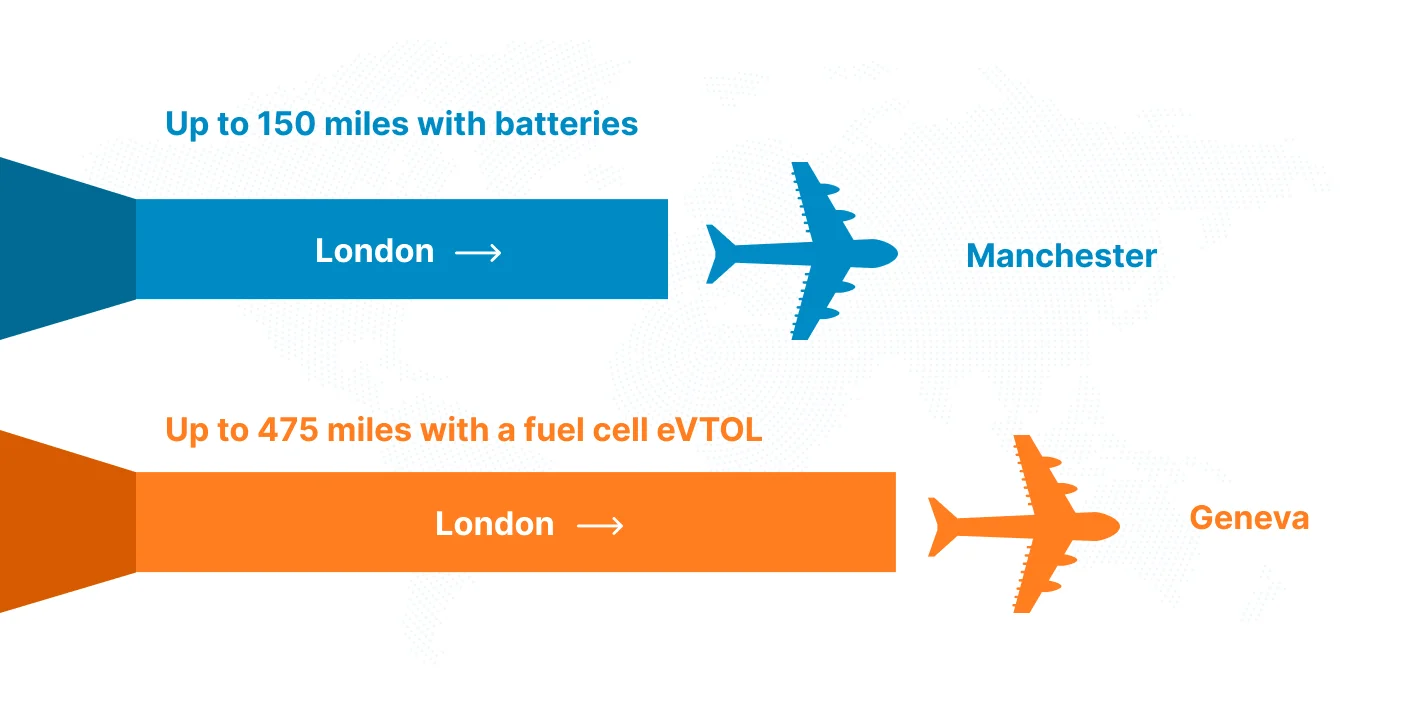Aircraft Fuel Cells
The aviation industry has recently become a focus for reducing emissions, due to the huge amount of CO2and other pollutants produced by burning kerosene. Whilst various technologies are being considered to replace kerosene combustion engines, there is a growing consensus that for planes up to regional aircraft size (<100 seats), hydrogen aircraft fuel cells provide the best technical solution. Achieving the necessary power density for flight is a major challenge to the industry and one that Intelligent Energy is taking on.
Intelligent Energy is a major partner in the UK’s Aerospace Technology Institute (ATI) funded project, working closely with lead partner GKN Aerospace on the development of fuel cell powertrains suitable for aviation in the H2GEAR project. This £54 million project is the largest ATI project to-date and demonstrates the UK’s commitment, as well as that of the UK’s aviation and fuel cell industry, to developing fuel cell technology for airplanes.
There is also increasing focus on aircraft fuel cells from the early-stage Electric Vertical Take-off and Landing (eVTOL)/Urban Air Mobility (UAM) industry which is developing new types of aircraft for short to medium range flights. The limitations of batteries, and focus on zero emissions, means that most eVTOL companies are now looking to aircraft fuel cells to meet their power requirements. IE is working with several major eVTOL manufacturers who are looking to utilise the IE-FLIGHT system for their programmes.

